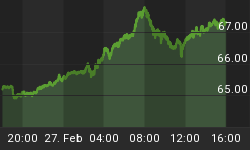Lee Cooperman, the billionaire chief executive officer of Omega Advisors Inc., spoke to Bloomberg TV's Erik Schatzker this morning about his hedge fund's investments. Cooperman said investing in U.S. Treasuries "makes no sense," he considers stocks the best investment today and that he likes gold, the S&P and Apple.
On investing in Treasuries:
"I have great confidence the Fed is ultimately going to get their way. The Fed is trying to elevate asset prices, help consumption, help the economy and in two-three years time, we will be worrying about inflation and interest rates will be materially higher."
"An instrument that I have absolutely no interest in - the most widely traded instrument in the world - is US government bonds. I don't think people understand how risky a US government bond is at 2% return."
"I understand the arguments of those that are liking it but a 2% government bond... if we're talking about marginal tax rates, all in state and local, federal 40%, you're keeping 60% of your 2%, you are keeping 1.2% . The rate of inflation is somewhere in the range of 2-3% so your capital is being confiscated, it makes no sense."
"If you look at the history of the 10-year government bond - normally, and we're not in normal times now, we're in a world of financial repression because of weak economic conditions - in normal times, a 10-year US bond yields in line with nominal GDP - nominal GDP is the summation of inflation plus real growth."
"So if inflation is ranging 2-3%, let's say and real growth is 2-3%,that would mean nominal GDP would be growing normally between 4-6%. So if I told you 10 year government bond was going to 4-5%, you wouldn't think that was a bold or unusual forecast. Well, that is an enormous capital loss for the person that holds that 2% government bond."
"Amongst the panoply of financial assets, I think US government bonds are the least attractive and I think equities, and I've been premature in all honesty, the market didn't do as well as I thought it would do last year, it's slightly ahead of schedule this year- but when I look at the alternative of financial assets - Cash earns zero, and Bernanke has promised us it is going to be zero for a couple of years; you've got keep some of that for security and safety purposes; you have U.S. government bonds at 2% - 0 interest and I don't own ONE In my portfolio."
"The third alternative is high yield, that's had an enormous rally that's down to a little over 7%; so selectively you could find individual issues that make sense, but collectively high yield has kind of got itself fully priced."
"Then you're left with the S&P, which is 13 ½ earnings; yields a bit over 2%, 10% below the historical multiple at a time when interest rates are below historical and you can find lots of cheap stocks out there that will yield more than bonds today that are good companies that will grow over time."
"So I think by default stocks went out, and they are the best house in the financial asset neighborhood. Not to say we're not without problems - Iran, the price of oil, the uncertainty over political outcome come November..."
On what equities he likes:
"I think gold will work, I think the S&P will work, they've already worked somewhat this year. The S&P is up somewhere around 8%."
"We find a lot of cheap stocks around, technology. I hate to buy things that are up a lot, so forgive me if I mention things that we own, but we own them and we would not own them if we didn't like them."
"I would like to put new money to things that haven't moved. We like, in technology, Apple and Qualcomm."
On Apple's share price and Apple vs. RIM:
"We think [Apple] is worth something north of $600."
"It's funny, it was really like a mass hysteria. We put about a half of one percent of our assets into RIM late last year on a theory that they had a revenue base that was being mispriced by the market. Which was 20% of what we had in Apple, we've owned Apple now for a long time, and we continue to own a big position, so we had five times more Apple investment than RIM."
"We kept on getting calls from the press about RIM. We sold RIM because we have a discipline of taking stop losses, still think it might be intriguing. They have 75 million subscribers, that are paying them on average almost five dollars a month for the email service. We're out of it.
"I wouldn't say Apple is the leading candidate for new money, I wouldn't put new money into Apple, but we're riding the trend. And we think they have a unique position and a couple more years of very good runway ahead of them. "
"Qualcomm has the dominant chip in smart phones."
"In the financial area, we own JPM, a little bit of Citicorp, Bank of America, and a very unique company called Altisource Portfolio Solutions which helps manage the foreclosure process for banks."
"In the healthcare area, we like the HMOs, the United, WellPoint, Boston Scientific. In the media area we like EchoStat, Dish. There're just no shortage of attractive stocks."















